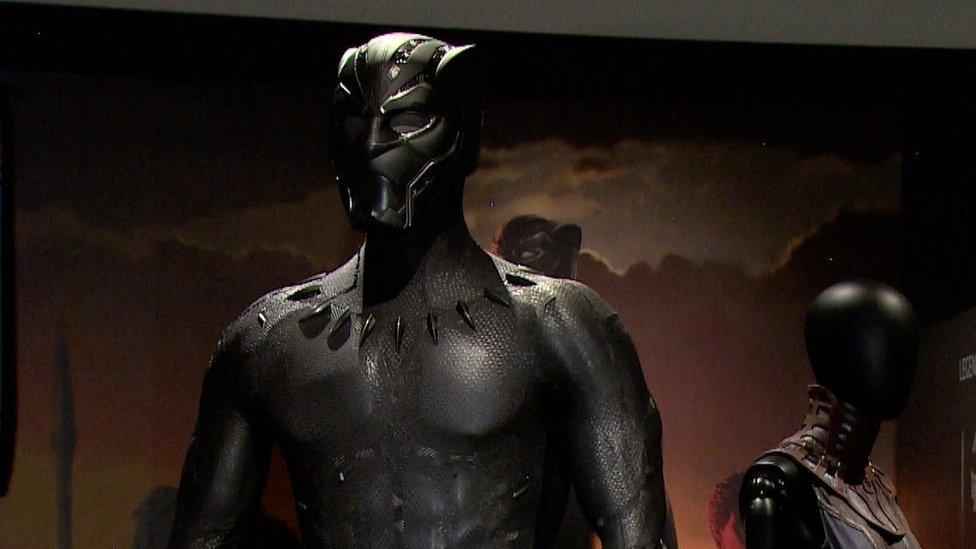The Power of Stories: The lasting impact of Suffolk's Black Panther exhibition
- Published
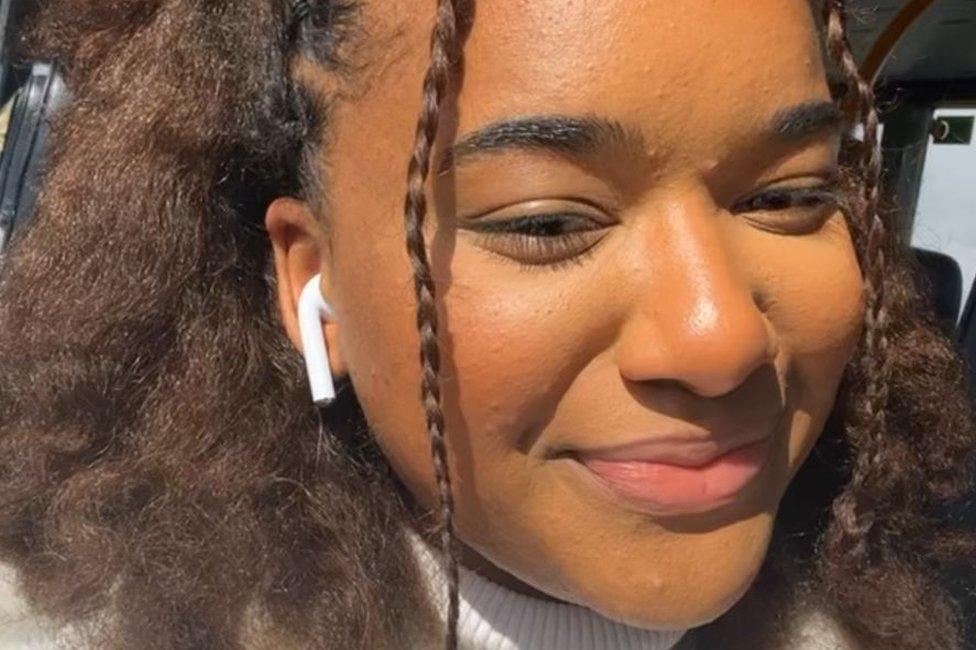
Melody Broomfield
When Marvel allowed Ipswich to become the first British museum to be loaned three of its Black Panther costumes it was a huge coup for the town and the county of Suffolk as a whole. But what has the lasting impact of the exhibition been?
"The exhibition has inspired me in many different ways by wanting to research my own background and ask more questions," says 20-year-old Melody Broomfield from Haverhill.
"It's also led to me creating a power point on the Windrush generation, going into other courses within my college and teaching and having conversations with other people my age and younger about what experiences people our age would have gone through a few years ago, and how it's changed.
"I think without being part of the exhibition, I don't think I would have cared as much to do all of that work and look into my own background."
The exhibition started in 2021 when Ipswich Museum was loaned three costumes from the first Black Panther film as part of its Power of Stories exhibition. The costumes were for three characters - T'Challa, Shuri and Okoye.
Having a plot based around a black superhero and a predominantly black cast was a first for Marvel Studios when Black Panther was released in 2018.
Since then, the exhibition has gone to Moyse's Hall Museum in Bury St Edmunds and the historic Snape Maltings where the composer Benjamin Britten previously performed.
One of its most immediate legacies was the formation of Aspire Black Suffolk, a new black female-led community organisation which has created a new black history education book for schoolchildren in Suffolk.,
The group is working to boost the representation of diverse communities has been invited to speak at conferences nationwide about diversity and inclusion.
For Miss Broomfield, the exhibition's legacy has been deeply personal.
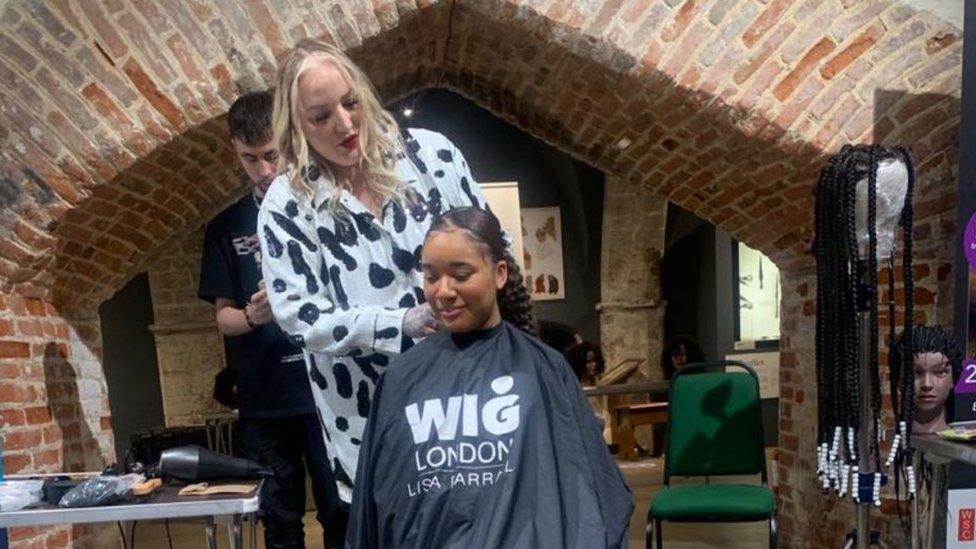
Melody at the hair workshop at Moyse's Hall Museum, Bury
She joined one of the exhibitions' community engagement projects in Bury.
During the project, celebrity stylist Lisa Farrall led a workshop for working with textured and natural black hair with students from West Suffolk College.
"That workshop was quite emotional for me at the beginning," says Miss Broomfield, "because being black in Suffolk, I felt really different, and I would never wear my hair down.
"After having conversations with other people my age and them feeling hair textures and understanding how difficult it is to do our hair and speaking about that.
"It was just a really big eye opener and I started to wear my hair in more unique ways instead of just slick back in straight. I had my head curly, down, I let people see my Afro."
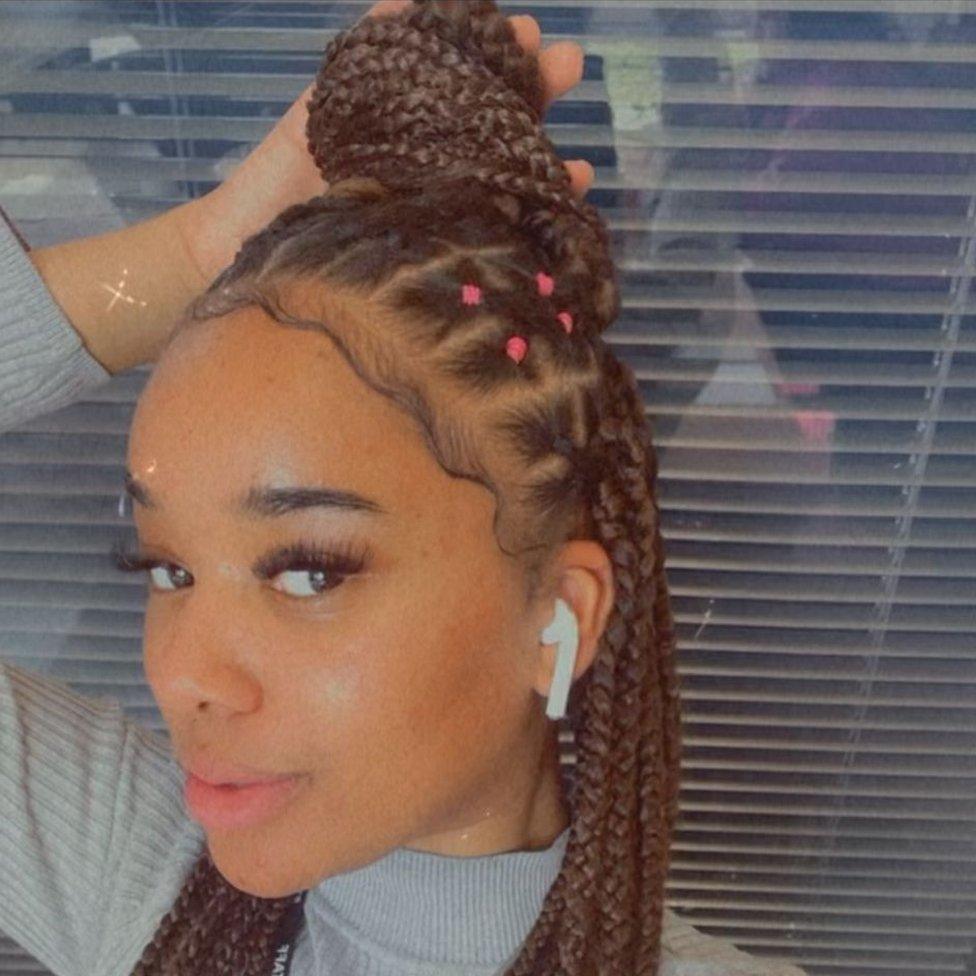
Miss Broomfield says the workshops have given her the confidence to show, and talk about, her hair
She tells of the difficulty young black and mixed heritage women have in getting their hair done or buying products suitable for their hair.
"I just thought my hair is amazing.
"People want to learn about my hair now, so I might as well show people what my hair looks like.
"So I think without that (hair workshop) I wouldn't have had the confidence to speak about it.
"Knowing what I know now, I wouldn't have been begging and begging for (hair) relaxers, so I just feel more confident that in the future other children, they will learn to love themselves as well as to learn to love others," says Miss Broomfield.
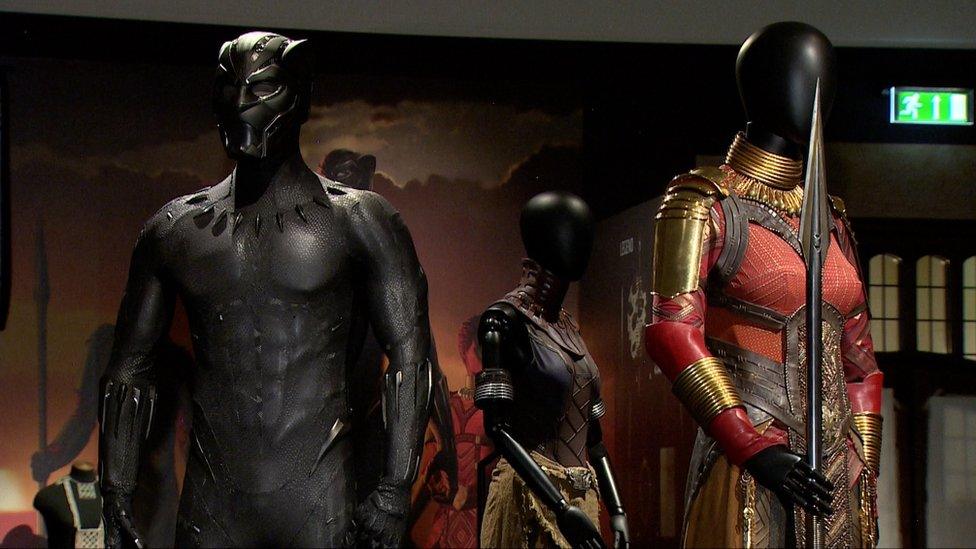
The three Black Panther costumes at Ipswich Museum
The original idea to showcase the costumes came from Ipswich museum after it was asked by its community panel to come up with something "exciting and relevant for more people".
They looked at popular culture and settled upon the idea of the Black Panther costumes.
You might also be interested in:
Six community curators - Ivy Devonish-Scott, Imani Sorhaindo, Daisy-Ann Lees, Lanai Collis-Phillips, Mike Lawless, Glen Chisholm - offered different perspectives on how the exhibition should look.
Artist Dan Malone was commissioned to produce the story of the Ipswich and Suffolk Council for Racial Equality (ISCRE) 40-year history in comic art.
It included stories of the Windrush generation. The exhibition also included objects from the museum's African collections, with carved poles, puppets and sculptures dating back to the 1800s.
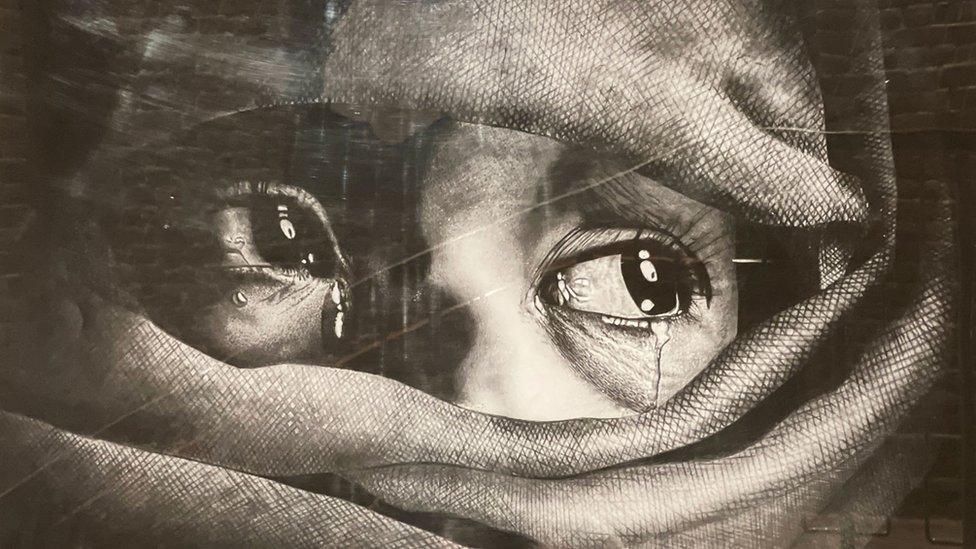
The exhibition at Snape Maltings showcases work by Frederico Ramos, an artist who lives in Ipswich and is originally from Portugal
A Zulu shield held by the museum, similar to one used in the movie's fight scene at Warrior Falls, can also be seen.
At Snape Maltings, where the exhibition is on show until 19 February, a series of creative workshops were held to provide a platform for the sharing of community stories for a new art collection which is now part of the exhibition.
As for Miss Broomfield, she hopes the exhibition's longest-lasting achievement will be a more tolerant and cohesive society.
"This is the first time in Suffolk that I've seen other people more engaged in and appear more welcoming towards us as a group of people," she says.
"I think as a whole, we might all just become one. There won't be that line of stereotyping, of 'oh, you're different - we're in our group, you're in your group'.
"I feel like now that we all have a similar topic to speak about, and we're learning from each other."

Find BBC News: East of England on Facebook, external, Instagram, external and Twitter, external. If you have a story suggestion email eastofenglandnews@bbc.co.uk, external
Related topics
- Published12 May 2022
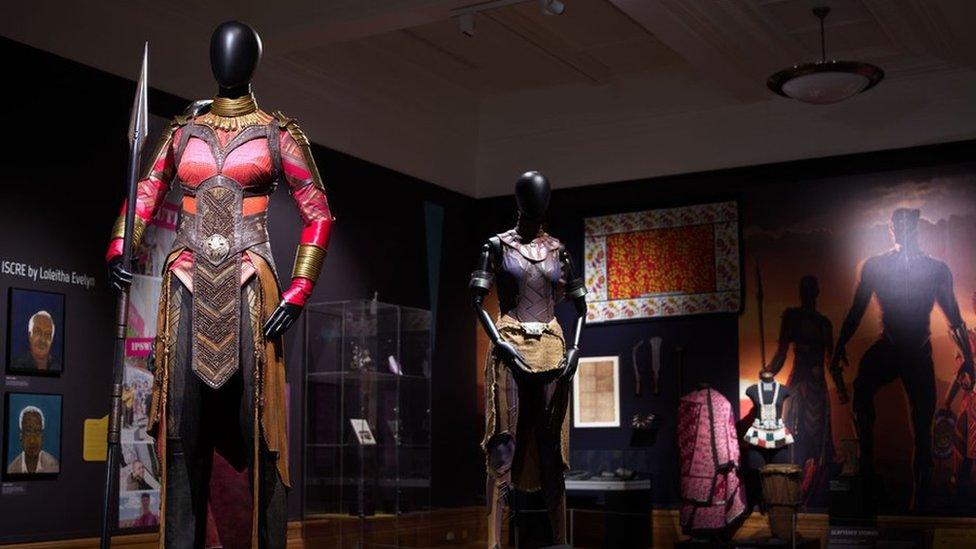
- Published25 June 2021
